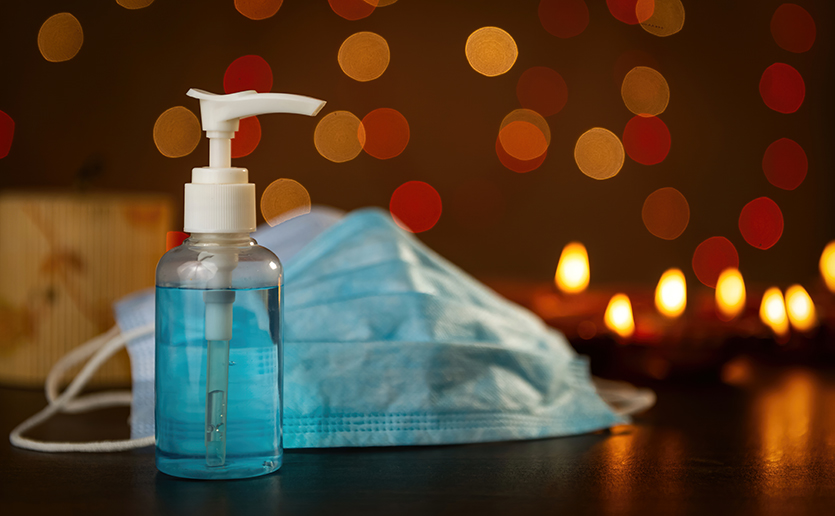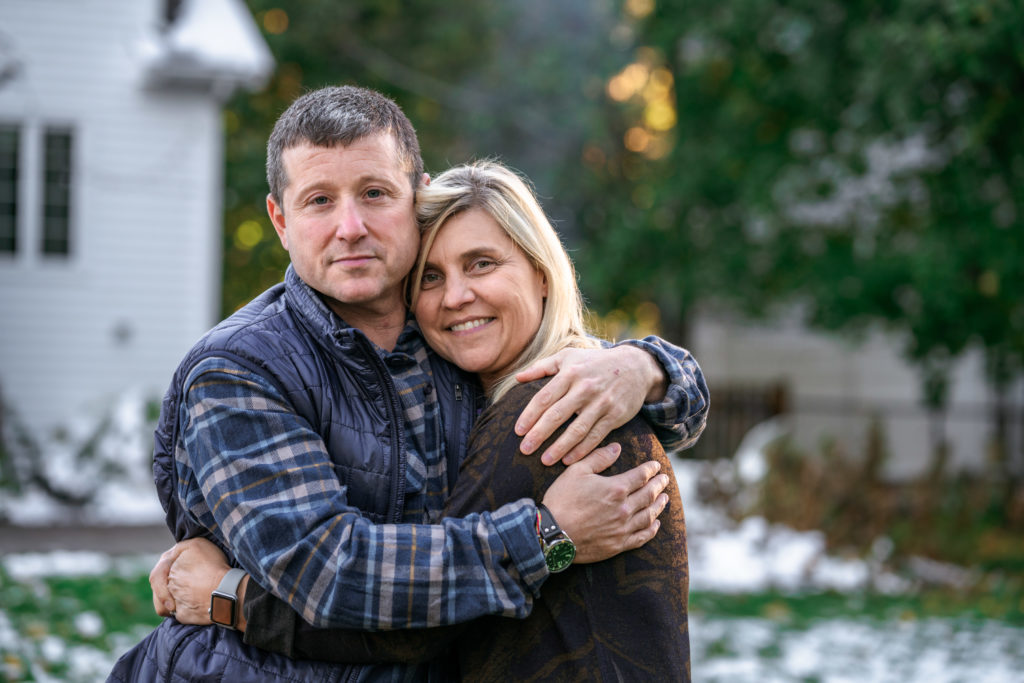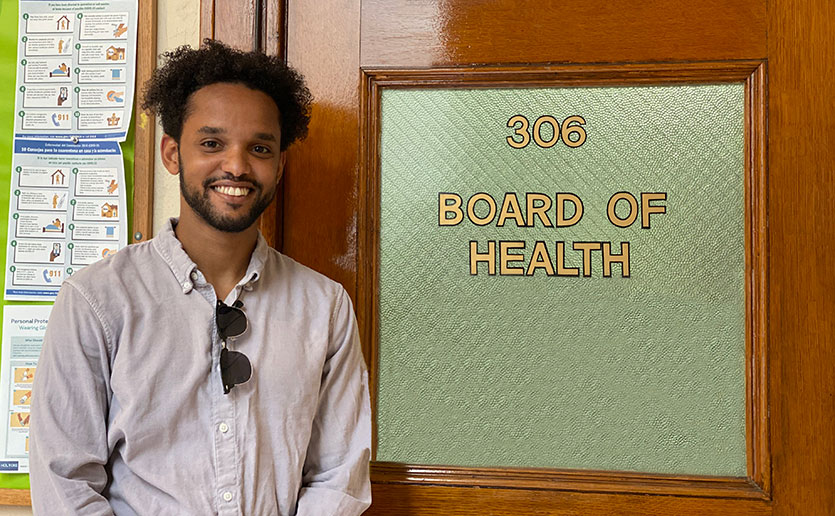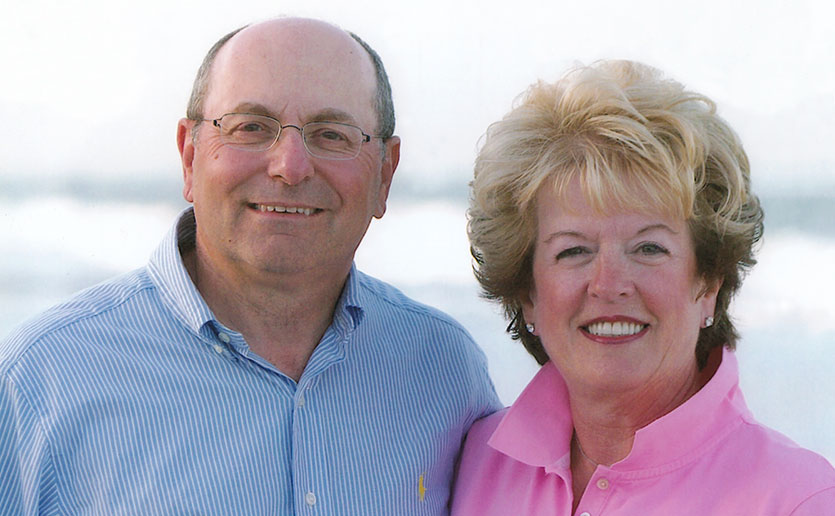Key Takeaways
- The safest way to celebrate the holidays this year would be to only celebrate with people within your home, particularly if everyone in the household has been practicing physical distancing
- If you are hosting a family gathering this season, or plan on celebrating the holidays with someone who is not living in your household, there are several safety steps you should take
- If you are an older adult or a person with certain medical conditions who is at increased risk of severe illness from COVID-19, or live or work with someone at increased risk of severe illness, you should avoid in-person gatherings with people who do not live in your household
- Faith-based communities have many challenges adapting to COVID-19 this year, but there are strategies we can take to reduce the risk of COVID-19 during faith-based services
With the holidays around the corner, figuring out how to celebrate beloved traditions during a pandemic can be challenging.
Amir Mohareb, MD, and Kristen Hysell, MD, of the Infectious Diseases Division at Massachusetts General Hospital, discuss steps that you can take to make this season joyful and safe.
As much as possible, faith-based communities should limit communal touching of the same surfaces/materials.
What tips do you have to celebrate the upcoming holidays safely?
We all love to spend time with our loved ones during the holiday season. This year, we will need to plan ahead and follow some extra precautions to make sure that we can celebrate the holidays safely. Different events will come with varying levels of risk of COVID-19. For example, indoor gatherings of lots of people in places with poor ventilation pose a high risk for spreading COVID-19. On the other hand, gatherings in outdoor settings or in places with good ventilation that have less people and safe distancing are less likely to transmit COVID-19.
The CDC website includes lots of helpful information and tips for celebrating the holidays safely.
Churches in some states are open, but is there risk in attending a service?
Faith-based communities have many challenges adapting to COVID-19 this year. While each religious tradition is different, there are some common strategies we can take to reduce the risk of COVID-19 during faith-based services.
Congregants should be encouraged to:
- Physically distance
- Wash their hands, preferably with soap and water
- Wear masks, especially when physical distancing is difficult
As much as possible, faith-based communities should limit communal touching of the same surfaces/materials. Religious leaders should attempt to limit the number of people exposed to vulnerable members of the community, including those who are elderly and who have high-risk medical conditions.
The CDC website provides a resource on the considerations we should take in religious settings.
Is there a safe way to share a meal together?
A meaningful part of the holidays involves sharing meals together. This year, we will have some challenges in doing that safely. The safest way to celebrate this year would be to only celebrate with people within your home, particularly if everyone in the household has been practicing physical distancing. Eating together outside is generally lower risk for transmitting the virus that causes COVID-19. As the weather gets colder, this will become more difficult. As such, shared meals will require more planning. Here are some steps that you can take:
- Clean and disinfect frequently touched surfaces
- Eat in well-ventilated spaces and try to open windows as much as possible
- Limit the number of people eating together at one time
- Limit the number of people in food preparation areas
Is it safe to travel to a loved one’s house for the holidays?
Traveling to a loved one’s house for the holidays may come with risks of transmitting COVID-19, particularly if any members of the house have not been physical distancing. If you are an older adult or a person with certain medical conditions who is at increased risk of severe illness from COVID-19, or live or work with someone at increased risk of severe illness, you should avoid in-person gatherings with people who do not live in your household.
People with or exposed to COVID-19 should not participate in any in-person gatherings.
People with or exposed to COVID-19 should not participate in any in-person gatherings. If anyone in your household has been recently diagnosed with COVID-19, is waiting for COVID-19 test results or has had symptoms suggestive of COVID-19, you should avoid in-person gatherings. Symptoms of COVID-19 include:
- Fevers
- Chills
- Headaches
- Runny nose
- Muscle aches
- Fatigue
- Loss of sense of smell and taste
The CDC website provides further guidance on who should avoid holiday gatherings for health reasons.
Is there a way to make it less risky to travel to a loved one’s house for the holiday?
If you plan on celebrating the holidays with a friend or family member who is not living in your own household, you can minimize the risks of spreading COVID-19 with the following measures:
- Limit the number of people gathering together at the same time
- No one should gather around other people if they are feeling symptoms of COVID-19, which include fevers, chills, cough, fatigue, muscle aches or loss of sense of smell or taste
- Be particularly cautious about practicing physical distancing for the two weeks prior to the gathering
- Wear a mask with at least two layers that is snug over your nose and mouth
- Wash your hands frequently. Use soap and water and wash for at least 20 seconds
- Ask your guests to bring their own plates and utensils
- Try to celebrate outdoors. If celebrating indoors, keep windows open so that the rooms are as well-ventilated as possible
- Clean and disinfect surfaces between use
I am hosting a family gathering. What can I do to keep my guests safe?
If you are hosting a family gathering this season, there are several steps you should take to make sure it is done safely:
If anyone feels ill following the gathering, it is important to inform all guests so they know to isolate from others and potentially seek medical advice if they begin to feel unwell.
- Communicate openly and honestly with your guests well ahead of time to provide the right expectations and give them time to prepare to celebrate safely
- Request that your guests practice strict physical distancing, avoiding all other people, for the two weeks prior to your gathering
- Try to limit the number of guests at any one time to reduce the chance that the infection will spread
- Ask your guests to wear masks when not eating or drinking, especially while indoors
- Remind your guests that they should not participate if they are feeling sick or exposed to someone who is feeling sick. Guests who are at higher risk of complications from COVID-19 (people with certain medical conditions and people who are elderly) should avoid in-person gatherings as much as possible
- During food preparation, make sure you clean your hands often and limit the number of people handling or serving food
- When guests arrive, remind them to wash their hands with soap and water for at least 20 seconds
- Try to avoid situations where guests will sing or shout
- Limit contact with commonly touched surfaces or shared items such as serving utensils
- After your event, make sure everyone washes their hands with soap and water
If anyone feels ill following the gathering, it is important to inform all guests so they know to isolate from others and potentially seek medical advice if they begin to feel unwell.
The CDC website provides further guidance if you are considering hosting an event.
What if I am exposed to someone with COVID-19 at a family gathering?
If you have symptoms suggestive of COVID-19, you should isolate from others and seek advice from your doctor. If you were potentially exposed to someone with COVID-19 at a family gathering:
- Stay home for 14 days after your last contact with a person who has COVID-19
- Stay away from others, especially people who are at increased risk for severe illness from COVID-19
- Watch for fever (100.4°F or higher), cough, shortness of breath or other symptoms of COVID-19
- Consider getting tested for COVID-19. Even if you test negative for COVID-19 or feel healthy, you should still stay home (quarantine) for 14 days after your last contact with a person who has COVID-19. This is because symptoms may appear two to 14 days after exposure to the virus, and some infected people never have symptoms but are still contagious
- Do not travel until 14 days after your last possible exposure
The CDC website provides more detailed guidance for those in this situation.
Though the holidays will be a little unusual this year, taking these steps will help keep you and your loved ones safe as you celebrate.




